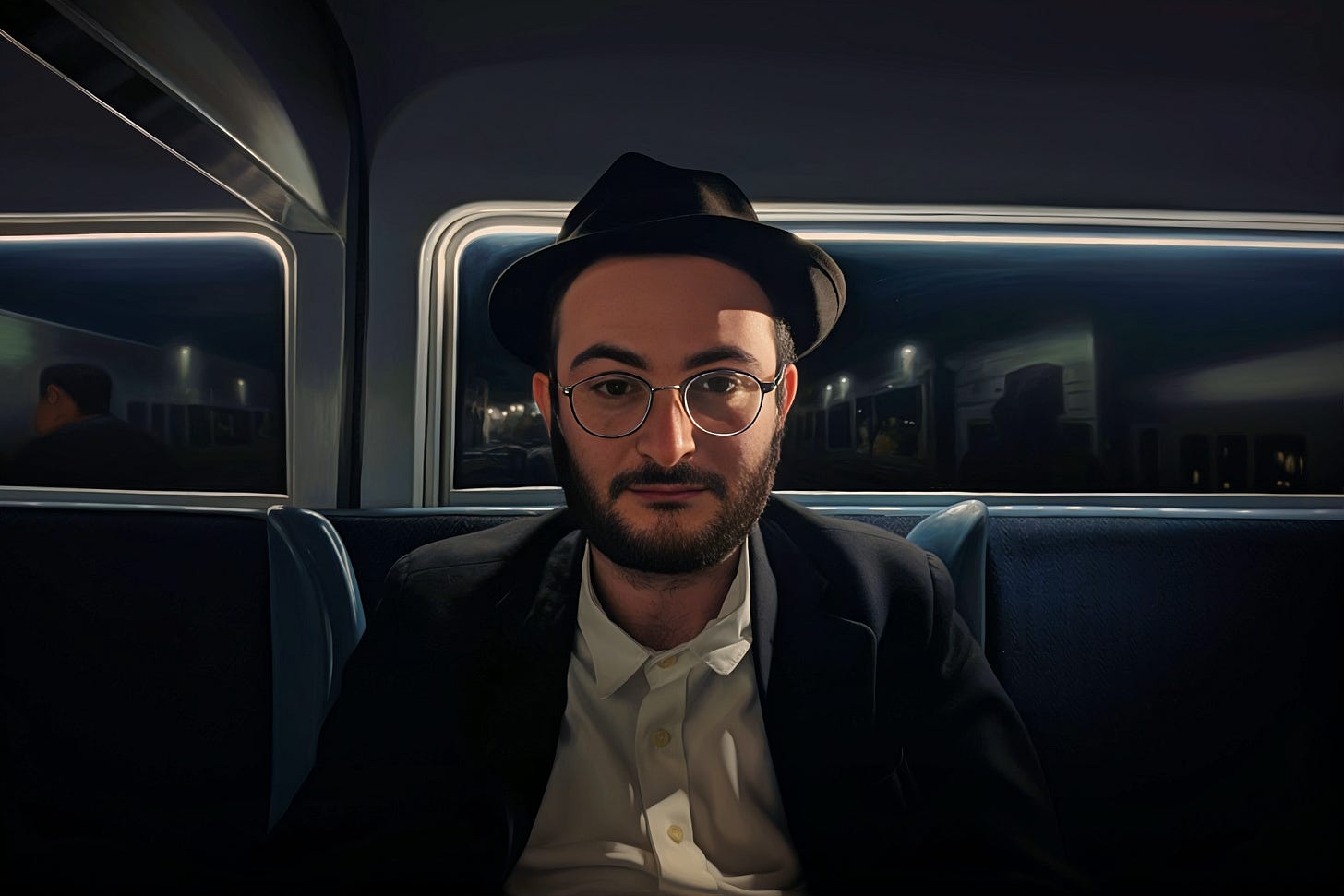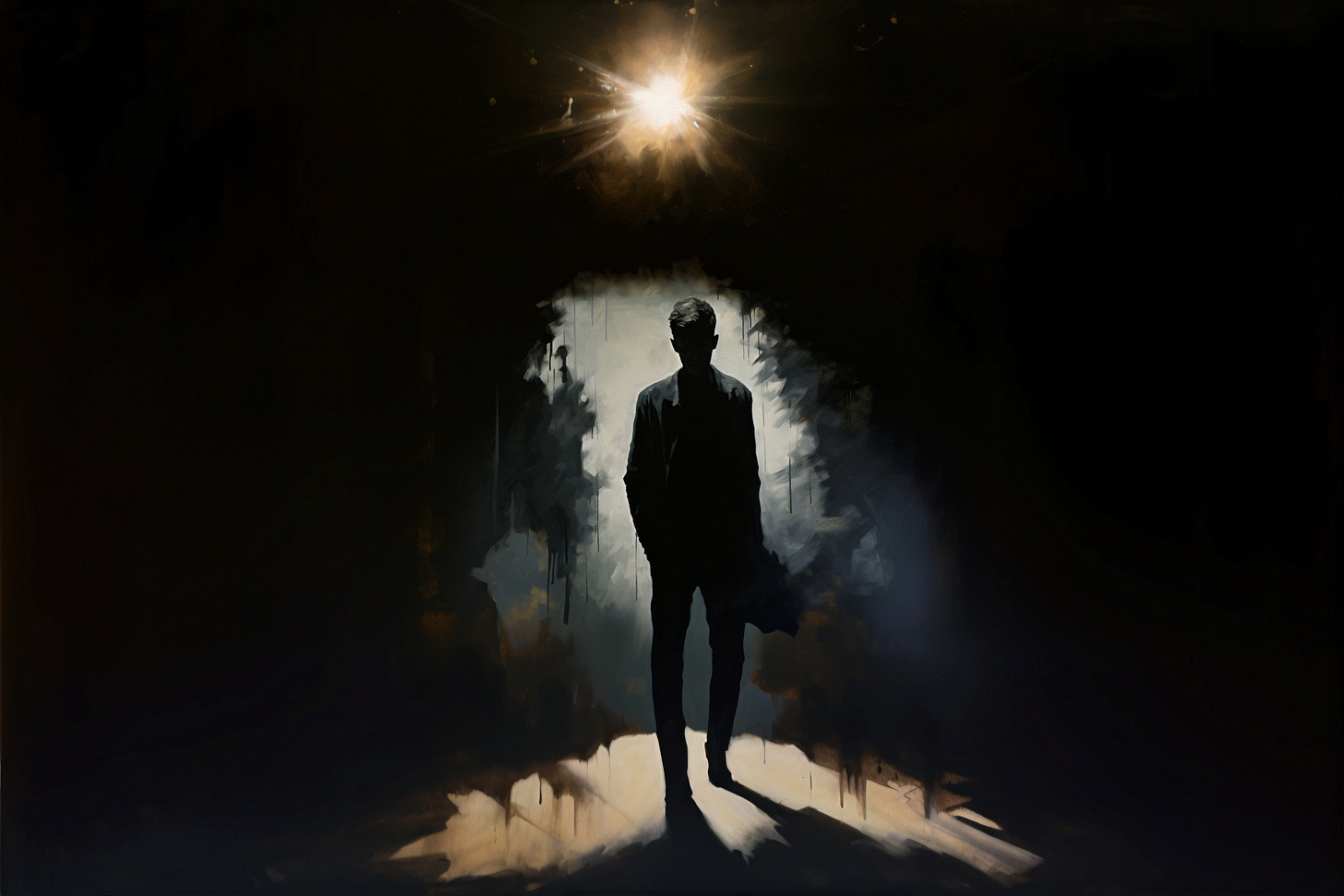Do we feel anything anymore? When was the last time any of us encountered something fully? Modernity marked an unbearable dulling of the spirit, a muffling of the natural highs and lows that long defined the human condition. We have lost our taste for what is real, meaningful, and rooted in the soul. A general sense of numbness is the steep price we pay for our convenient life. We may have gained efficiency and stimulation, but man lost something precious in the process: our vitality, passion, and fully-lived humanity.
What gave rise to our numbing state? Sociologist Jean Baudrillard pointed to our gradual disengagement from our immediate surroundings. Through the proliferation of models and copies, we now inhabit a world where fabricated representations compete against and often supersede reality. According to Baudrillard, people relate more deeply to these contrived simulations than to authentic events. Our emotional investments are concentrated on the artificial while we remain unresponsive towards life itself. This saturation in hyperreality leads to a flattening of effect, an inability to access our deeper wells of feeling and compassion when confronted with real-world trauma.
In this vein, one social critic noted that people wept in cinemas when the fictional extraterrestrial E.T. requested to 'phone home'. Yet few demonstrate significant empathy for the actual suffering of living human beings. In this desert of the real, people's nervous systems are habituated to and stimulated by simulations. As a result, we are left relationally and emotionally stunted in the face of genuine existence.

But the rot runs deeper still. Materialism proposes that experience arises from physical brain processes alone. In this view, the brain simulates reality through sensory cues and associations rather than passively perceiving an objective world. If all subjective experience is neurologically generated in this way, we are limited to interacting with our internal models instead of directly engaging external reality. Materialism thus strands us within elaborate yet impenetrable simulations created by the "black box" of brain function. Current thinking divorces the mind entirely from direct engagement with the world, leaving the two fundamentally isolated without reconciliation. Ultimately, this very modern worldview leaves us trapped in a flickering internal theatre, estranged from reality as it is.
On such an account, we are cut off from direct access to truth and thus inhabit a realm of perceived copies rather than actualities. While materialism seeks to describe all existence through physical mechanisms, it ironically denies us ever grasping the ultimate nature of reality. This ascendancy of materialist philosophy leads to a numbing of human experience, dulling our ability to appreciate Being fully.
During these ten days of awe, I found myself revisiting this question of inadequate emotional capacity. Prayer's added evocative sections are clearly designed to evoke deep feelings. Even so, we still find it challenging to produce them. Recently, I dropped by my former Yeshiva for a pre-Rosh Hashona alumni event. To my humiliation, the entire gathering had occurred online. I probably should have examined their invitation email before undertaking such an extended bus ride! Rather than a reunion, then, I got an unexpected trip down memory lane. This experience led me to reflect on a psychological and spiritual need I have left unattended.

My four years studying in Yeshiva were transformative. I gained immeasurably from outstanding teachers and underwent profound personal growth immersed in an authentic Torah environment. My life would be drastically diminished, but for those critical formative years devoted to Talmud study. And yet, there were also difficulties. For years, I wrestled with anxiety. I wanted to succeed so badly, yet lacklustre textual skills left me feeling hopelessly behind. Even after gaining sufficient ground, that gnawing sense of inadequacy never let up. My subjective experience of the Yeshiva system's inherent fusion between academic and religious expectations made for a high-pressure concoction. I became a battered mental ping-pong ball, a cluttered labyrinth of fears entangled in self-blame. Psychosomatic headaches and pains flared up, hampering my learning and escalating the spiral.
All these emotions flooded back during my visit. Unremarkable landmarks in the surrounding streets evoked memories of frustration and failure. These locations, I realised, have become personal monuments to those moments enshrined within. And yet, despite their prominent negative associations, being back there, I noticed something else: a subtle sensation lingering just below the surface of my discomfort. The sense I encountered was a surprising level of nostalgia. A counterintuitive longing, not just for the good times but even for the strains and struggles of my past years. But why? I can confidently tell you I am no masochist. Sitting pretty in my current psychological state, I have zero desire to return to that dark place of stress, self-doubt and anxiety.
Although I can't be absolutely sure, I believe the nostalgia I experienced that evening was a longing for a time when God felt closer. Being faced with hardship can counterintuitively evoke an awareness of immediacy. It has a way of piercing our everyday distractions and dwellings of the mind, forcing us to confront life's underlying questions. And therein sometimes lies its paradoxical gift - it strips away pretences and externalities, leaving only raw immediacy between the experiencing self and the Divine other.
One of the most moving parts of the Rosh Hashana and Yom Kippur liturgy is the famous Unesanneh Tokef. In it, we meditate on the fact that:
Man originated from dust, and his destiny is back to dust. At the risk of his life, he earns his bread; he is likened to a broken shard, withering grass, a fading flower, a passing shade, a dissipating cloud, a blowing wind, flying dust, and a fleeting dream.
As with clarifying the effects of suffering, prolonged contemplation of our insignificance can produce emotional immediacy with God. To catch a glimpse of the eternal against which our brief sojourn flashes by like a flickering candle can have a sobering effect: a stirring reflection on both the majesty of the Creator and the transient nature of all worldly things. And perhaps this is one of the dimensions of return we must dwell on during these awesome days.
The Baal Hatanya composed a haunting niggun to the words 'Avinu Malkeinu Ein Lanu Melech Elah Atah', our Father our King, we have no King beside You1. I heard Rabbi Moshe Weinberger touchingly observe that the way the tune flows, it almost sounds like we are saying we have no king... followed by a pause and then the statement beside You. While the infinite God forever transcends our concepts, we yearn to connect with our Father not merely through earthly roles but via a direct encounter with the Divine Essence. It is impossible, and yet we still thirst for Him. To feel in this passing life, even momentarily united with God "as he is," is the longing that ignites the divine spark within us.
Amidst this complex modern age, it is easy to become anaesthetised to life's most profound meanings and fullest emotions. But the Days of Awe call us to break free of this numb state. Only by stripping bare our external buffers and distractions can we pierce through to a raw immediacy with the Divine. In those sobering moments contemplating our fleeting lifespan against eternity's majesty, we stir our souls to feel life's ephemeral nature with renewed clarity and our deep longing for connection to the one true Source of being. This year, may the days of awe ignite an awakened sense of immediacy with God, rousing us from our habituated slumber to forge a lasting and transformative encounter with the Real on whom all existence depends.
Keep Pondering, and Have A Meaningful Yom Kippur
If you liked reading this, feel free to click the ❤️ button on this post so more people can discover it on Substack 🙏




